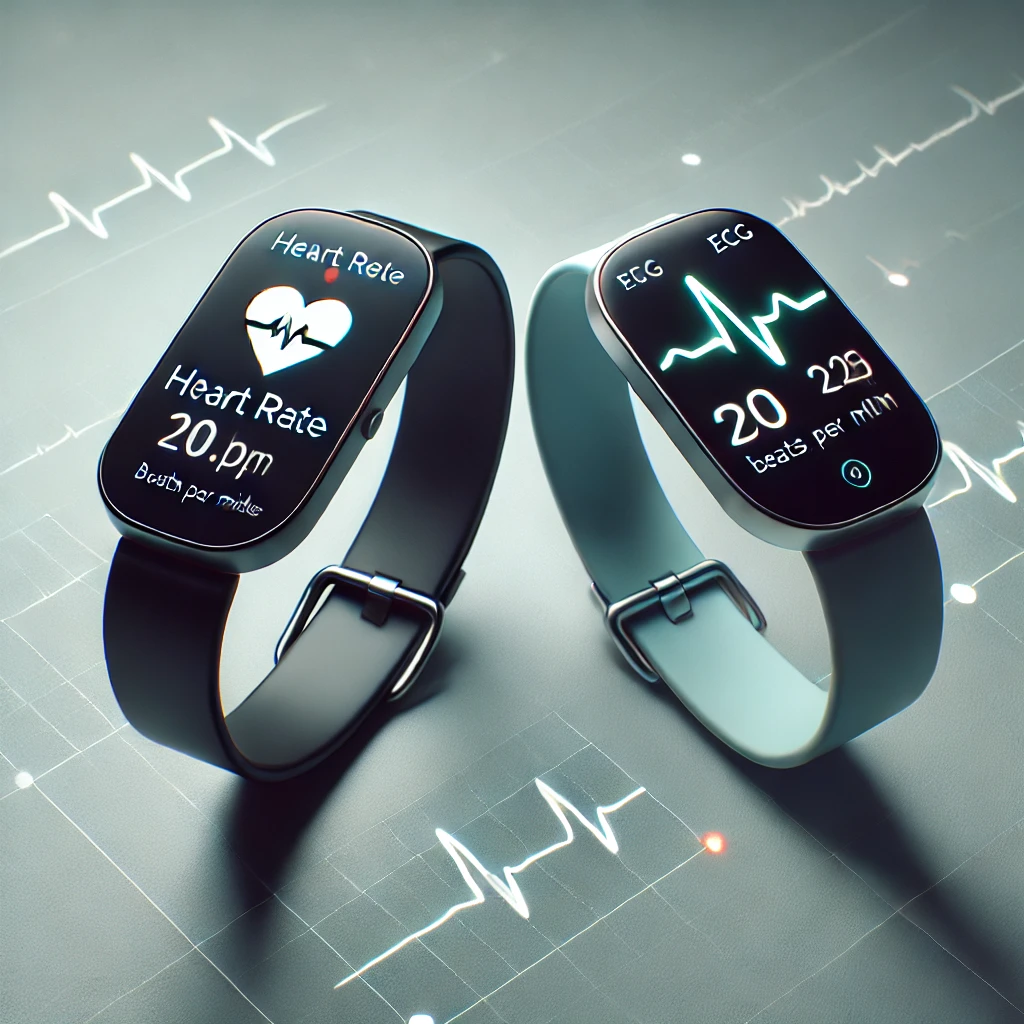So, you’re in the market for a shiny new health gadget, but feeling overwhelmed by the sheer number of “fitness trackers,” “smartwatches,” and every other buzzword getting thrown at you? You’re not alone, and you’re in the right place. Whether you’re eyeing the latest step-counter, wondering if a smartwatch can help you sleep better, or simply intrigued by how wearable health technology fits into your wellness goals, we’re diving into every corner of this fascinating field so you don’t have to.
Introduction to Wearable Health Technology
What are Fitness Trackers and Smartwatches?
In a nutshell, fitness trackers and smartwatches are both wearable devices designed to make your health journey less of a guessing game. They help track your steps, monitor your heart rate, and even analyze your sleep quality – essentially becoming the personal health coach you never knew you needed. However, there are some key differences between them. Fitness trackers focus primarily on fitness-related metrics, such as counting steps, calories burned, and monitoring physical activity. In contrast, smartwatches aim to do much more. They act not only as a fitness companion but also as your personal assistant, keeping you connected with notifications, apps, and reminders. Moreover, smartwatches often include extra features, like voice control, GPS, and even contactless payments. Thus, while both are beneficial, each caters to different needs, making your choice highly dependent on your lifestyle goals and preferences.
How Wearable Health Tech Has Evolved Over Time
These wearable health technology have come a long way from clunky pedometers to sleek, versatile devices. Initially, the idea was simple—help people measure their physical activity. Over time, however, the technology evolved rapidly. Now, they provide a holistic look into your health, analyzing sleep patterns, detecting irregular heartbeats, and even motivating you to keep moving. Moreover, they offer personalized feedback that makes achieving fitness goals much more manageable. With advances like ECG capabilities and even SPO2 measurement, wearables now cover many health aspects. Furthermore, integration with smartphones makes tracking easier and more insightful. This shift has turned what was once niche technology into mainstream health monitoring tools. As a result, wearable health technology has become a staple for anyone looking to stay proactive about their well-being, offering both convenience and deep health insights.
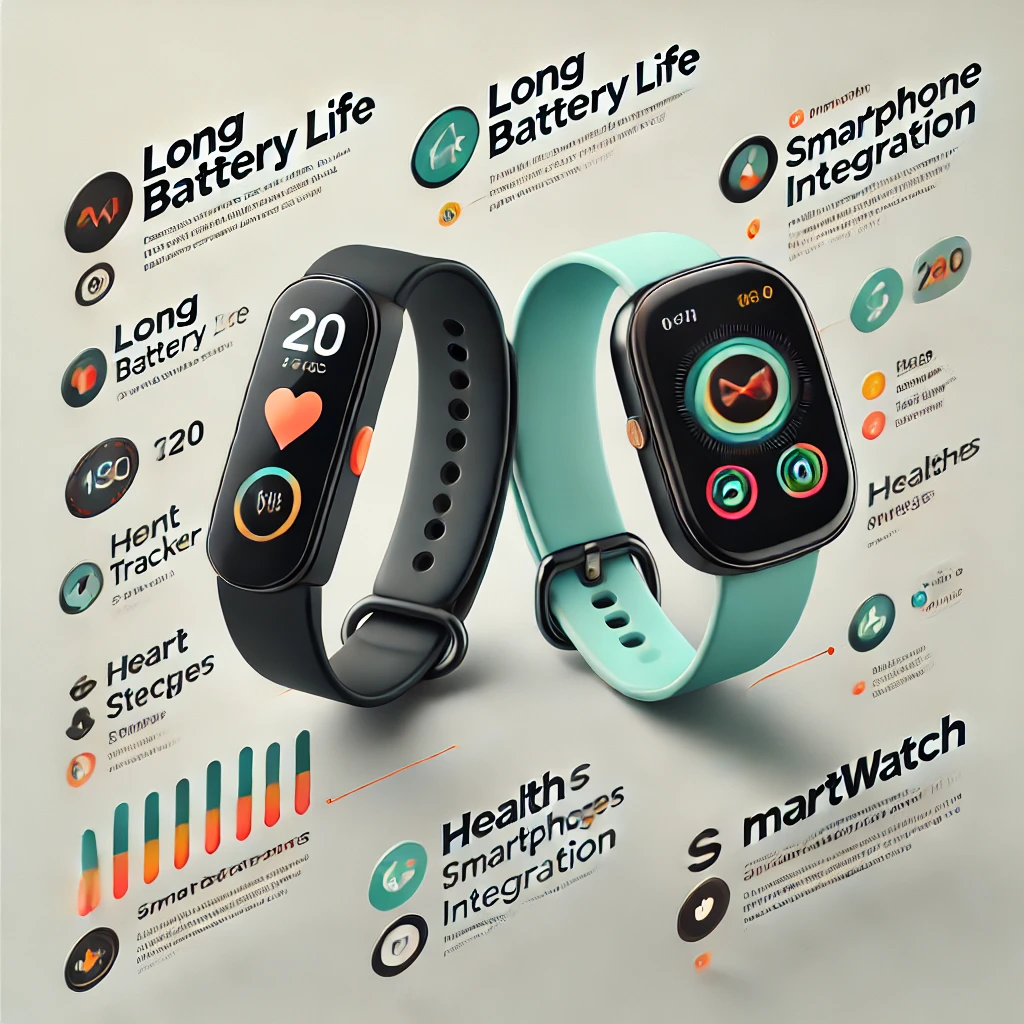
Comparison summary
| Feature | Fitness Trackers | Smartwatches |
|---|---|---|
| Primary Focus | Health and fitness tracking | Multi-functional (health + smart features) |
| Battery Life | Longer (up to a week) | Shorter (1-3 days) |
| Weight/Design | Lightweight and discreet | Heavier, more noticeable |
| Price | Generally more affordable | Typically higher priced |
| Notifications | Limited or no notifications | Full notification support |
| Customization | Limited | High customization |
Fitness Trackers vs. Smartwatches: Which One Is Right for You?
Comparing Core Functions and Features
Before you part with your cash, know this: fitness trackers focus primarily on tracking physical activity, such as counting steps, monitoring heart rate during workouts, and keeping you on target with daily activity goals. However, smartwatches, on the other hand, do all of that and much more. Not only do they track your fitness, but they also act as an extension of your phone, offering notifications, app integration, and even voice assistance. Additionally, smartwatches often come with GPS for accurate location tracking, making them ideal for outdoor enthusiasts. Moreover, they provide options like contactless payments, making your life even more convenient. Think of a smartwatch as the Swiss Army knife of wearables—combining fitness tracking, notifications, apps, GPS, voice control, and even that touch of style that makes you feel just a little bit cooler.
Pros and Cons of Each Device Type
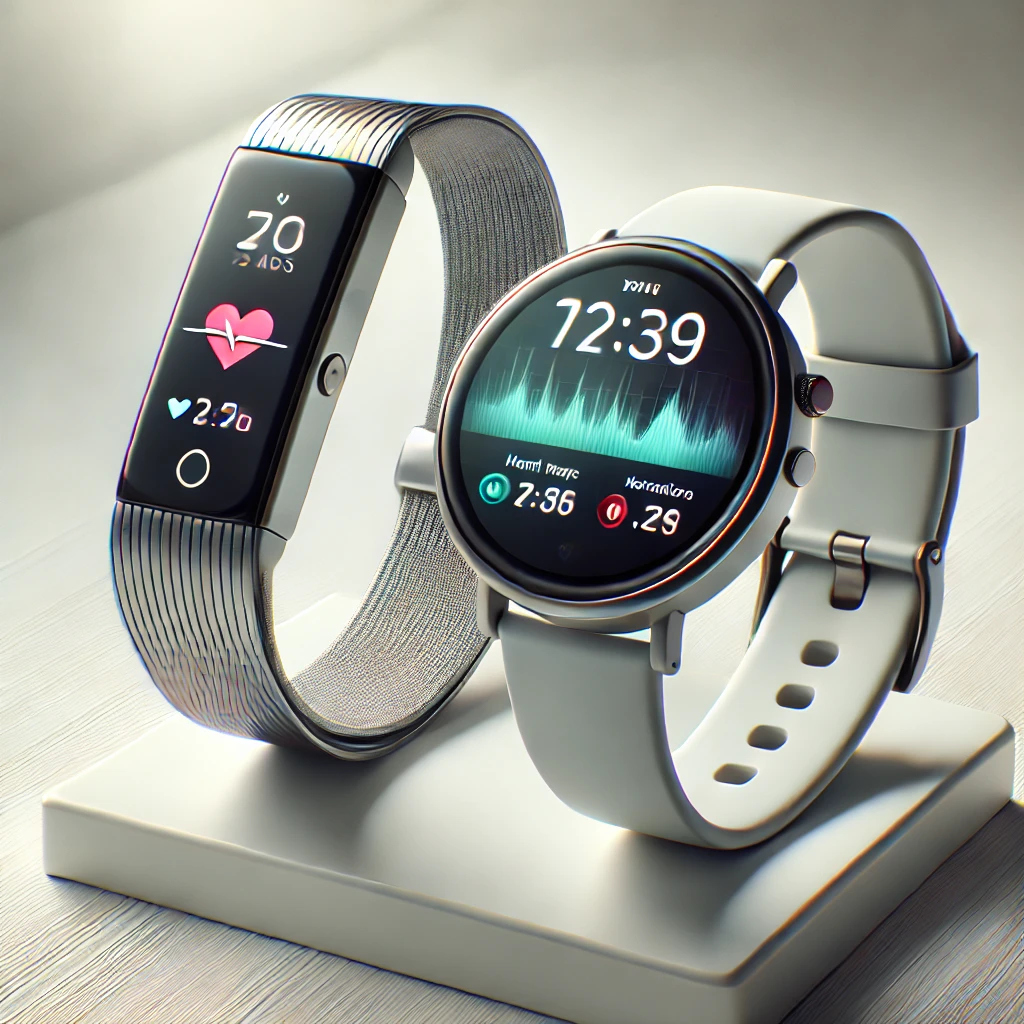
Fitness Trackers
Lightweight, simple, and with longer battery life. However, they usually come with limited features beyond fitness, focusing mainly on metrics like steps, calories, and heart rate. On the positive side, fitness trackers are often more affordable compared to smartwatches, which makes them ideal for beginners. Additionally, their straightforward approach makes them easy to use without overwhelming users with too many options. However, they often lack advanced features such as GPS, music controls, or app notifications. Therefore, they are best for users primarily interested in tracking daily physical activity rather than seeking a fully integrated smartwatch experience. Despite these limitations, fitness trackers can still play a crucial role in keeping you motivated and aware of your daily health habits, ensuring you stay active and meet your wellness goals.
Smartwatches
Feature-packed, they can be a partial phone replacement, offering incredible convenience and functionality. However, battery life can be a real drawback, especially with the more advanced models that use energy. Additionally, smartwatches tend to be bulkier than fitness trackers, making them less comfortable for all-day wear. On the positive side, they integrate seamlessly with apps, provide detailed health insights, and have GPS for accurate location tracking. Furthermore, smartwatches offer features like voice assistance, contactless payments, and smartphone notifications, making them highly versatile. Despite their bulk and battery limitations, they offer unmatched functionality that bridges the gap between fitness tracking and staying connected. For those looking for an all-in-one solution, smartwatches are an excellent choice.
How Wearable Health Tech Can Improve Your Lifestyle
If you’re hoping to get off the couch more, or to finally understand why you’re always tired despite “getting eight hours,” these wearables can lend a helping hand. Not only do they provide motivation, but they also offer a deeper understanding of your health. With real-time metrics and personalized data, health wearables can give you that insight—or guilt-trip—to improve your health. Moreover, they make it easier to recognize unhealthy patterns, and identify areas where small changes can make a big difference. Additionally, wearables can provide reminders to stay active, track your sleep, and even monitor your heart rate throughout the day. Consequently, they become an essential tool for anyone serious about making positive health changes. Overall, wearables act as your personal coach, keeping you accountable and informed every step of the way.
Key Features of Fitness Trackers and Health Wearables
Heart Rate Monitoring and ECG Capabilities
These aren’t your average heart rate monitors. In fact, many wearables today offer much more advanced technology, with some devices featuring ECG capabilities that can detect conditions like atrial fibrillation—a potentially serious health issue. Additionally, they continuously monitor your heart rate, providing alerts if anything abnormal is detected. It’s almost like having a mini cardiologist right on your wrist, offering peace of mind for those concerned about heart health. Furthermore, these features can help you track irregularities over time, which you can then share with your healthcare provider. As a result, wearable devices are not just for fitness enthusiasts; they are also great for those who want to stay proactive about their cardiovascular health. Although it’s not a replacement for professional medical care, it definitely helps you stay more informed.
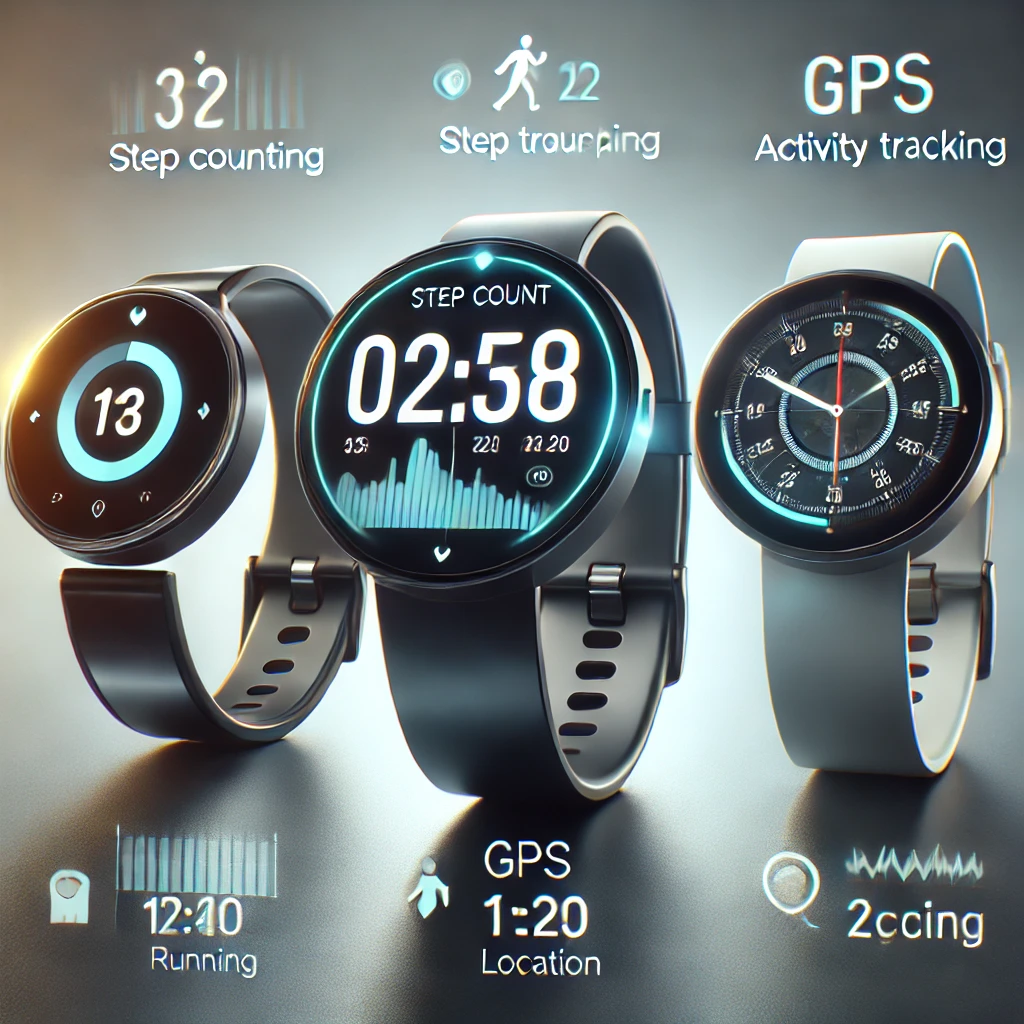
Step Counting, GPS Tracking, and Activity Tracking
From steps taken to calories burned, these trackers are designed to be your all-day partner in health. Moreover, they offer insights into your activity trends, helping you understand your daily habits better. GPS tracking adds another layer—perfect for outdoor runners or cyclists who want accurate distance and route data. In addition to basic activity tracking, these devices can also monitor workout intensity, giving you valuable data to optimize your training sessions. Furthermore, they help track different types of activities, like swimming or yoga, allowing for a more holistic fitness overview. With their easy-to-use features, fitness trackers keep you constantly aware of your physical activity levels. As a result, they encourage you to stay active throughout the day, while also providing reminders and nudges to reach your goals. Ultimately, they are effective companions in building healthier routines.
Popular Fitness Trackers and Smartwatches in the Market
Overview of Leading Brands Like Fitbit, Garmin, and Apple
When it comes to health wearables, three names tend to dominate the space: Fitbit, Garmin, and Apple. Each has its strengths:
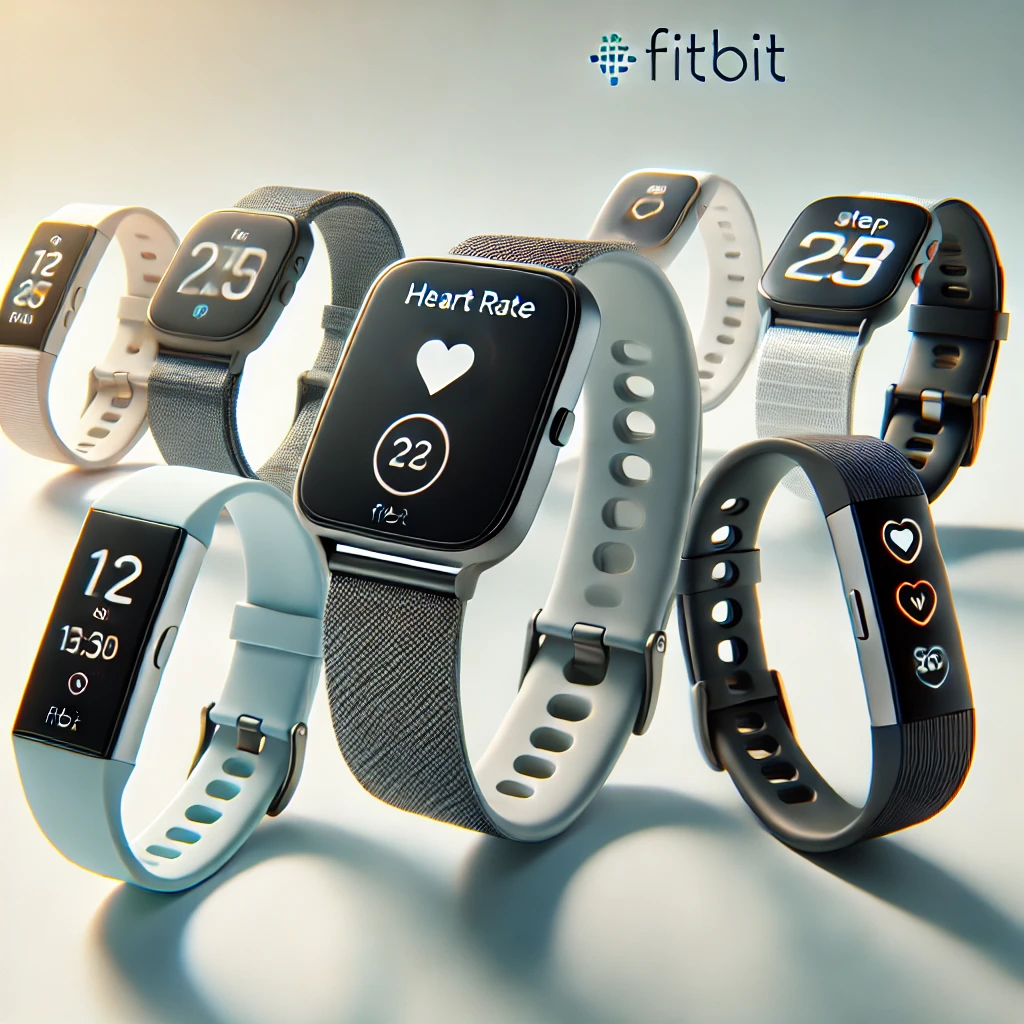
Fitbit
Reliable fitness tracking with an emphasis on community and motivation. Fitbit’s platform encourages users to connect with friends and family, making fitness more engaging. Furthermore, the app features challenges and competitions that help users stay motivated. Additionally, Fitbit devices offer a wide variety of health metrics, from heart rate to sleep tracking. These features are designed to keep users consistently aware of their progress and activity levels. Moreover, Fitbit’s sleek design and lightweight build make it comfortable for everyday wear. For beginners or those looking for a simple way to stay active, Fitbit provides the perfect blend of functionality and ease of use. Its intuitive interface and goal-setting features make it an excellent choice for anyone trying to establish healthier habits. Ultimately, Fitbit is all about community-driven motivation and straightforward tracking.
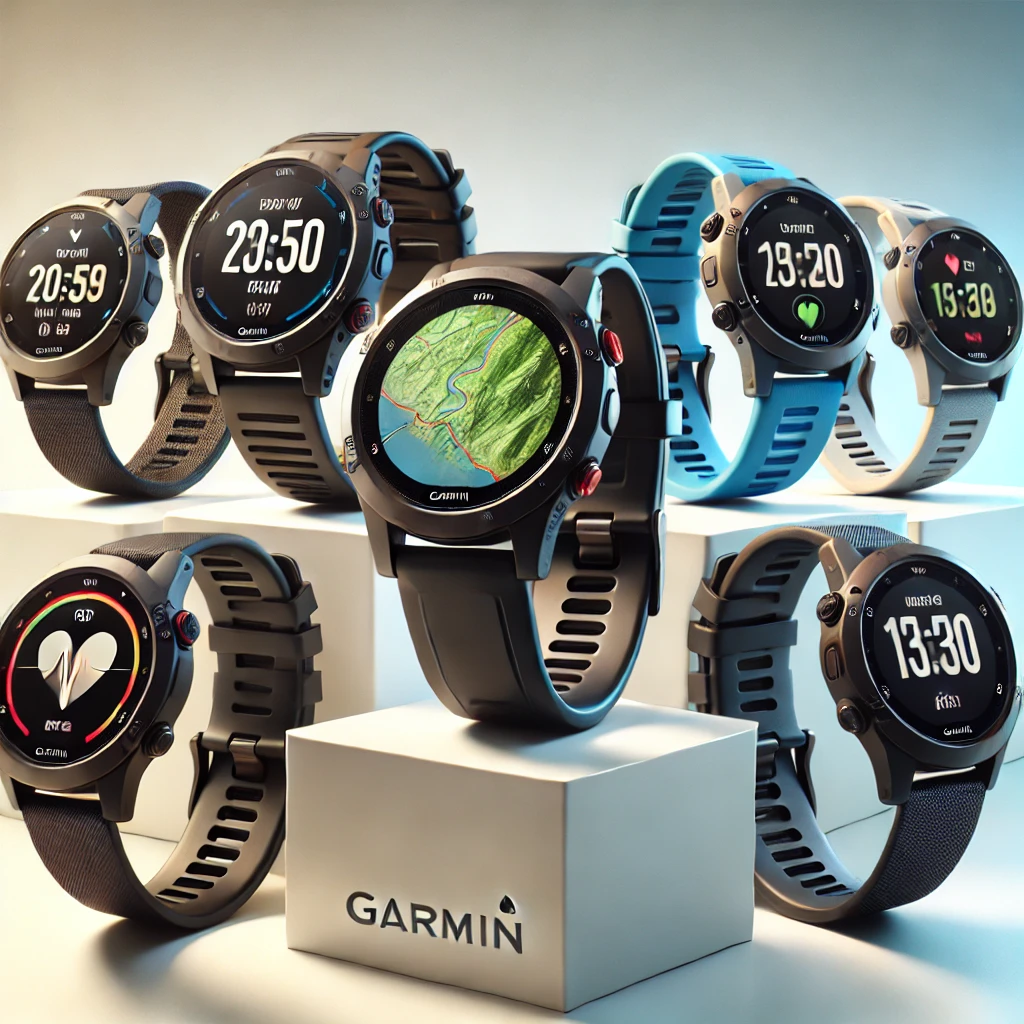
Garmin
Accurate, great for hardcore athletes and outdoor lovers. Garmin devices are well-known for their precise tracking and durability, making them ideal for demanding outdoor environments. Furthermore, Garmin offers a range of features tailored to endurance sports, such as advanced GPS, VO2 max, and heart rate variability analysis. These features help serious athletes fine-tune their training and achieve peak performance. Additionally, Garmin’s focus on rugged designs ensures their devices are built to withstand extreme conditions, whether you’re trail running, hiking, or cycling. Moreover, the Garmin ecosystem includes a wide array of compatible apps and accessories, enhancing the overall training experience. For those who enjoy adventure, Garmin’s topographic mapping and navigation features are a game-changer. Ultimately, Garmin wearables are crafted for those who take their fitness—and their outdoor adventures—very seriously.
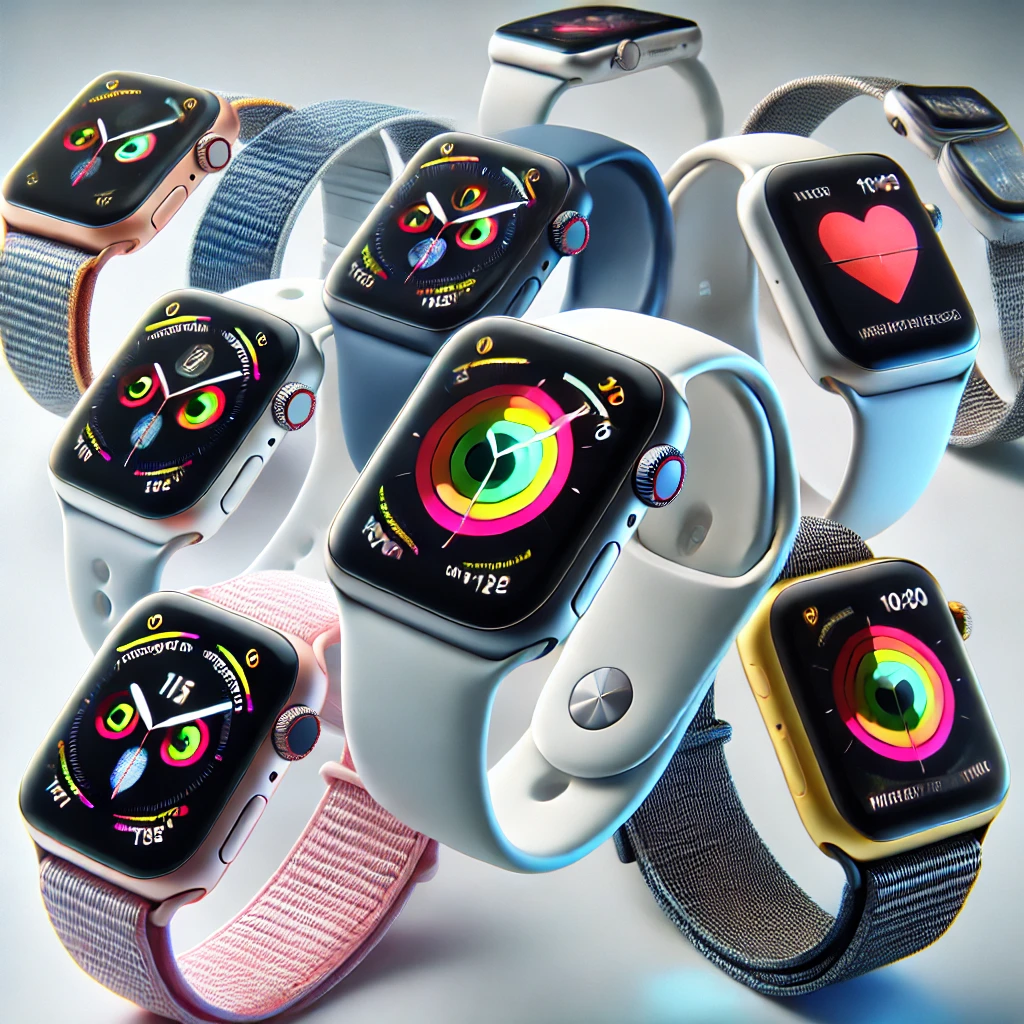
Apple Watch
The jack-of-all-trades that offers solid health monitoring alongside a lot of smartphone conveniences. Not only does it provide comprehensive health metrics, but it also seamlessly integrates with other Apple devices, which enhances user experience. Additionally, features like fall detection, ECG, and blood oxygen monitoring make it more than just a fitness gadget. Furthermore, the Apple Watch supports various third-party health apps, allowing you to customize your experience based on personal preferences. Moreover, it offers cellular connectivity, which means you can make calls and send messages without carrying your phone. The intuitive interface and variety of workout modes cater to beginners and fitness enthusiasts alike. Ultimately, it’s a wearable that brings together health, convenience, and connectivity, making it ideal for those wanting an all-in-one solution.
Unique Features that Set These Wearables Apart
Where the Apple Watch has the advantage of sleek integration with your iPhone, Garmin is about precision and data depth—like heart rate, VO2 max, and performance analytics. Fitbit focuses on simplicity and community support, encouraging you to share your achievements and stay motivated.
Benefits of Wearable Health Technology for Health Monitoring
Using a wearable health tracker doesn’t mean you’re trying to become the next big fitness influencer. Instead, it’s more about staying informed, being proactive, and having an honest look at how healthy you really are. Moreover, these devices help you maintain consistency without feeling overwhelmed by unrealistic expectations. In addition, tracking your health data over time provides valuable insights into your habits, which can lead to meaningful improvements. Furthermore, wearable health trackers can remind you when you’re slacking off or reward you when you’re on track. This kind of ongoing feedback makes it easier to adjust your routines in small, manageable ways. Consequently, you can make progress towards a healthier lifestyle without feeling pressured. Ultimately, wearable health trackers are about empowerment and understanding your body better every day.
How Wearable Health Technology Can Help with Sleep, Fitness, and Overall Well-being
Sleep Tracking and Insights for Better Sleep Quality
Ever felt like you’ve slept eight hours and still woke up feeling like a zombie? That’s because sleep quality is about more than just time. In addition to duration, factors like deep sleep, REM, and disruptions play major roles. Many fitness trackers and smartwatches offer sleep stages and sleep score metrics, helping you see where your sleep is solid and where it’s lacking. Moreover, these devices provide valuable insights, such as how often you wake up or how much deep sleep you get. Furthermore, tracking these metrics over time helps you identify patterns and make changes to improve. By understanding your sleep better, you can adjust habits, like reducing screen time before bed or improving your bedtime routine. Improving sleep quality is one of the easiest ways to boost overall health—yet it’s something we often overlook.
Fitness Coaching and Motivation Through Wearables
Most wearables go beyond data collection—they coach you, buzz you when you’re idle for too long, and motivate you with friendly reminders to stay on track with your goals. Moreover, they provide personalized coaching, which helps you achieve specific health objectives step by step. Additionally, they adapt their guidance based on your progress, offering suggestions to improve over time. This adaptability makes them invaluable, as they cater to your unique needs. Furthermore, many wearables incorporate gamified elements, turning fitness into a fun and engaging activity. With badges, challenges, and community competitions, staying active becomes more rewarding. Ultimately, it’s like having a personal cheerleader that doesn’t yell at you—unless, of course, you ask it to. The constant reminders and virtual pats on the back make it easier to stay motivated, ensuring you stick to your wellness journey.
Challenges and Limitations of Wearable Health Devices
No technology is without flaws, and wearables are no exception. Battery life is often a trade-off for features, especially when dealing with advanced sensors and functionalities. Additionally, some devices still suffer from less-than-stellar accuracy, which can affect user trust and reliability. Moreover, differences in sensor quality and individual usage habits often lead to inconsistencies in data. Privacy concerns also come into play, and these are significant for many users. After all, sharing your health data with corporations is a bit of a leap of faith, especially when it involves sensitive information like heart rate and sleep patterns. Furthermore, many users worry about how their data might be used or even sold to third parties. Despite assurances, concerns about data security linger, making it crucial for companies to be transparent and take strong security measures.
The Future of Wearable Health Technology
We’re already seeing hints of what’s to come. Think smart clothing with sensors, wearables that assess stress levels in real-time, and, who knows—maybe even implants that alert you before you get sick. The future is undoubtedly bright for wearable health tech, and it will likely make keeping track of health as seamless as getting out of bed (although for some of us, that might still be the hardest part).
FAQs About Wearable Health Technology
What is the difference between a fitness tracker and a smartwatch?
How accurate are fitness trackers for monitoring health metrics?
Which wearable device is best for tracking sleep quality?
What features should I look for in a health wearable?
How do fitness trackers measure heart rate?
Are health wearables useful for managing chronic health conditions?
What are some popular fitness tracker brands available?
Can smartwatches detect irregular heartbeats?
What are the limitations of wearable health technology?
How can health wearables help me improve my fitness goals?
Conclusion – Wearable Health Technology
Wearable health technology isn’t just a trend—it’s a revolution in the way we interact with our health. So, whether you’re a couch-to-5k newbie or a seasoned athlete, there’s a device out there to help you get better. Dive into the world of wearables and find the one that makes living a healthier lifestyle not just manageable, but actually enjoyable.

